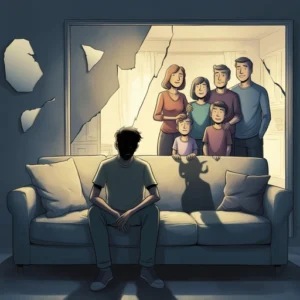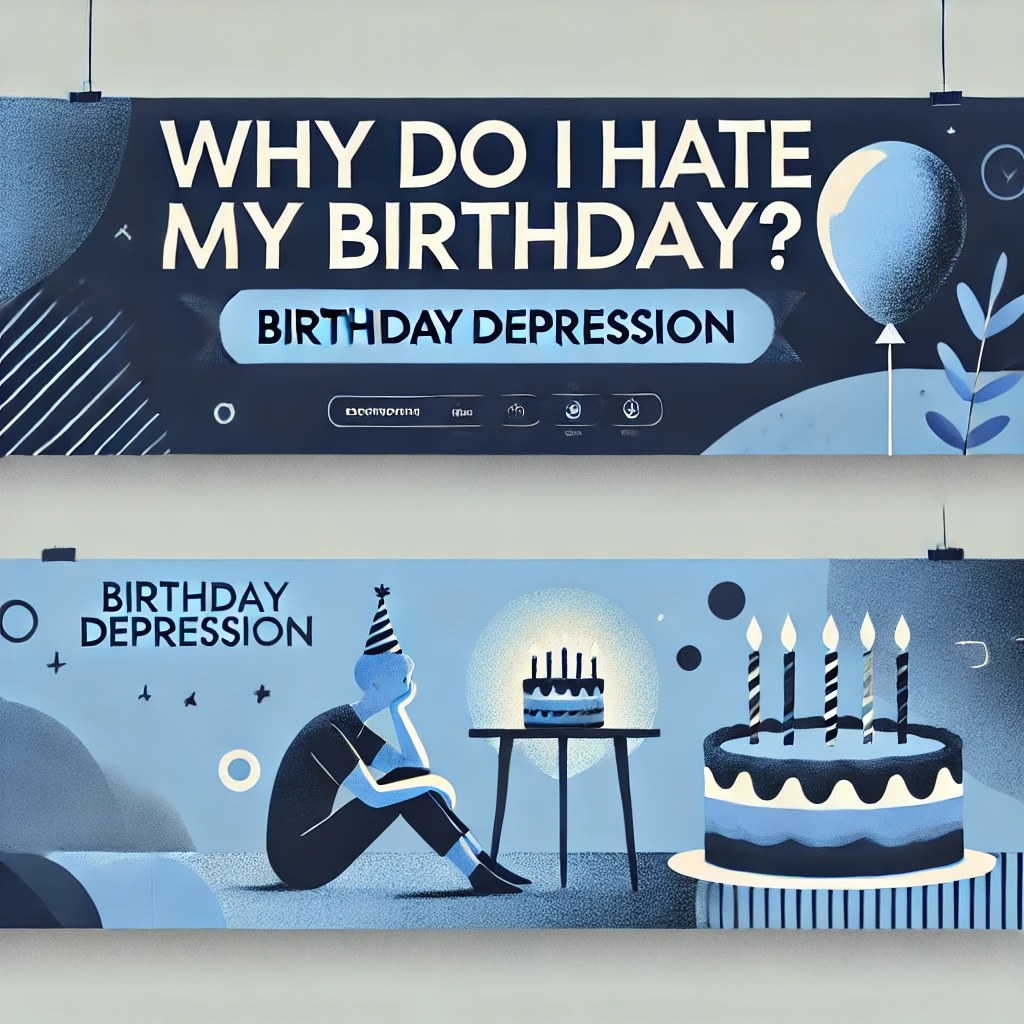Birthdays are often seen as joyous occasions, filled with celebration, gifts, and love from friends and family. However, for many people, birthdays bring a sense of dread, sadness, and even depression. This phenomenon, often referred to as birthday depression or the birthday blues, is more common than you might think. If you’ve ever found yourself asking, “Why do I hate my birthday?” you’re not alone.
Why Do I Cry On My Birthday? 4 Reasons
- Childhood Trauma
- For some individuals, birthdays are not associated with positive memories. If you experienced trauma or significant negative events around your birthday during childhood, these memories can resurface each year, turning what should be a day of joy into one of sadness and distress. Childhood trauma, whether it’s related to neglect, abuse, or other painful experiences, can cast a long shadow over your birthday celebrations, making it a difficult day to navigate emotionally.
- Fear of Death
- Birthdays are a stark reminder that we are getting older. For some, this brings an underlying fear of death or the anxiety of aging. Each birthday can feel like a countdown, a reminder that time is passing, and with it, the inevitable end of life. This existential anxiety can make birthdays feel more like a burden than a celebration, leading to feelings of sadness and fear.
- Societal Pressure
- Society often places high expectations on birthdays. We’re bombarded with images of perfect parties, lavish gifts, and the idea that our birthday should be the “best day of the year.” When reality falls short of these expectations, it can lead to disappointment and feelings of inadequacy. You may feel pressure to be happy, to celebrate, or to have a large social gathering, even if that’s not what you genuinely want. This disconnect between expectation and reality can contribute to birthday depression.
- Feeling of Loneliness
- Birthdays can exacerbate feelings of loneliness, especially if you don’t have close relationships or if your social circle is small. Seeing others celebrate their birthdays surrounded by friends and family can make your own solitude feel more pronounced. The day may highlight the absence of meaningful connections, leading to feelings of isolation and sadness.
What is Birthday Depression?
Birthday depression, also known as the birthday blues, refers to the feelings of sadness, anxiety, or apathy that some people experience around their birthdays. It can be triggered by various factors, such as those mentioned above, and may manifest as a reluctance to celebrate, crying, withdrawal from social activities, or a general sense of unease as the birthday approaches. While some people may experience these feelings temporarily, for others, birthday depression can be a recurring issue every year.
Feelings Associated with Birthday Blues
The birthday blues can bring about a range of emotions, including:
- Sadness: A deep sense of sorrow that lingers, often without a clear cause.
- Anxiety: Worrying about aging, the future, or how to celebrate.
- Guilt: Feeling guilty for not being happier or for not meeting societal expectations.
- Isolation: Withdrawing from others to avoid celebrations or because you feel disconnected.
- Regret: Reflecting on past years and feeling regretful about unachieved goals or lost opportunities.
I Don’t Want to Celebrate My Birthday Anymore. What to Do?
If you find yourself dreading your birthday and no longer wanting to celebrate, here are some steps you can take:
- Acknowledge Your Feelings:
- It’s okay to feel sad or anxious about your birthday. Acknowledge these feelings without judgment and understand that you’re not alone in experiencing them.
- Redefine the Day:
- Consider redefining what your birthday means to you. Instead of focusing on societal expectations, think about what would make the day meaningful for you. This could be spending the day alone in self-care, engaging in a hobby, or even volunteering for a cause you care about.
- Set Boundaries:
- If you don’t feel like celebrating, it’s okay to set boundaries with friends and family. Politely let them know that you prefer a quiet day and appreciate their understanding.
- Focus on Gratitude:
- Shift your focus from what’s lacking to what you’re grateful for. Reflect on the positive aspects of your life, the achievements you’ve made, and the relationships you cherish.
- Seek Support:
- If birthday depression is a recurring issue or if it’s causing significant distress, consider talking to a therapist. They can help you explore the underlying causes of your feelings and develop coping strategies.
- Plan Ahead:
- Planning your birthday in advance can help alleviate anxiety. Decide how you want to spend the day, whether it’s with others or alone, and make arrangements that align with your preferences.
Remember, your birthday is just one day out of the year. It’s okay if it’s not perfect, and it’s okay if you don’t feel like celebrating. Your well-being and happiness should come first, and you have the right to spend your birthday in a way that feels right for you.
The Connection Between Birthday Depression and Mental Health
Birthday depression isn’t just about disliking your birthday; it often signals deeper mental health concerns. The intense emotions, such as sadness, anxiety, or dread that you may experience around your birthday, can be tied to underlying mental health issues like depression, anxiety disorders, or unresolved trauma. Birthdays are milestones that prompt self-reflection, which can sometimes lead to feelings of inadequacy, loneliness, or a fear of aging. These feelings are often magnified if you are already struggling with your mental health.

Recognizing that birthday depression is linked to mental health is crucial for addressing these emotions. If you find that your birthday triggers significant distress year after year, it might be a sign that your mental health needs attention. Consulting with a mental health professional can help you explore the root causes of these feelings, provide you with coping strategies, and offer support tailored to your specific needs. Taking care of your mental health is vital, especially when facing emotionally challenging times like birthdays. It’s important to remember that prioritizing your well-being and seeking help is a step towards not only managing birthday depression but improving your overall mental health. Don’t hesitate to reach out for support—your mental health is worth the investment, and understanding your emotional responses can lead to a more balanced and fulfilling life











